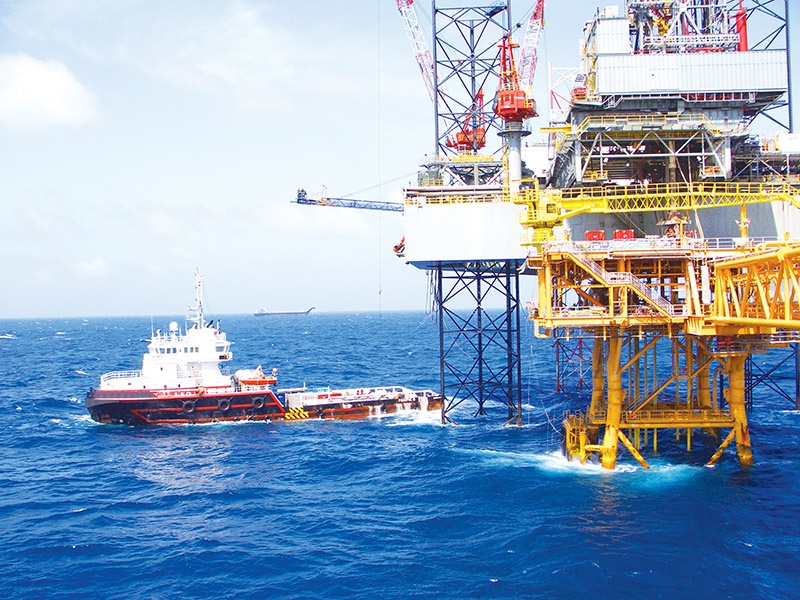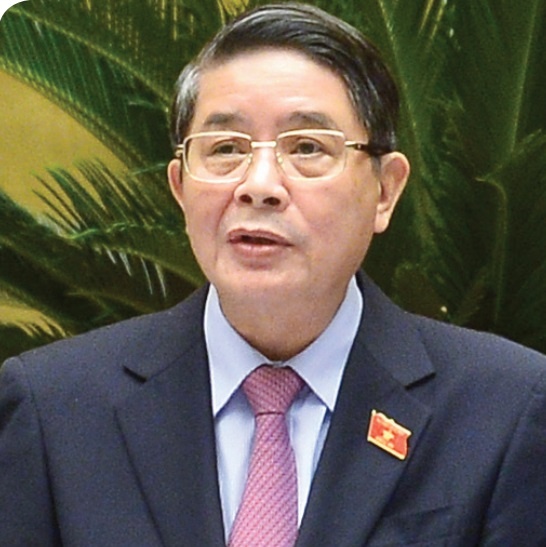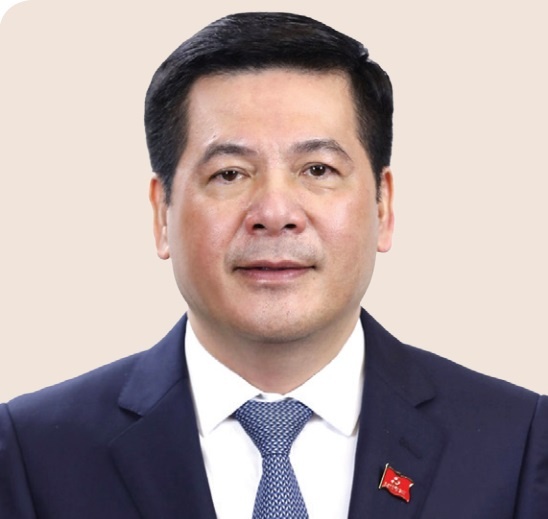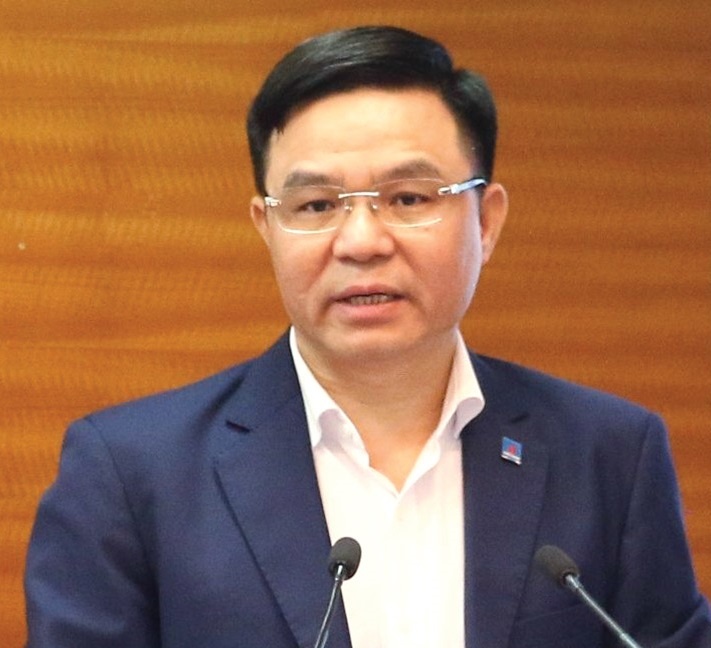Petrol law advances tailored for benefits
 |
| With adjustments to Vietnam’s petroleum law, more oil and gas contracts could become feasible, Photo: Le Toan |
The National Assembly (NA) is slated to promulgate the Law on Petroleum in its fourth session in October. The amendment is aimed at making the oil and gas sector more favourable with investment incentives and special policies for oil and gas projects. However, several NA deputies and experts are still unsure about these plans.
After reviewing the amended law, Nguyen Manh Cuong, Vice Chairman of the National Assembly Committee for Judicial Affairs, said that more consideration should be given to the authority to approve oil and gas contracts and issue investment certificates.
“According to the draft, the prime minister approves the content of an oil and gas contract. Clause 2 states that the PM’s approval is a prerequisite for the contractor to sign the contract and that this replaces the approval of the investment policy,” Cuong explained.
However, this may cause new problems, Cuong suggested. “For example, if the project is of national importance, with a capital of $435 million or more, it is necessary to use a specific mechanism that must be approved by the NA. In fact, when investing in the oil and gas sector, many projects are among those of national importance.”
The government is tasked with defining regulations on the principles of determining oil and gas fields which are eligible for investment incentives and favourable policies. Accordingly, the draft law stipulates a corporate income tax (CIT) of 25 per cent for such oil and gas fields.
However, the CIT law has yet to mention this. So far, crude oil is subject to a tax rate of 5 per cent while the cost recovery rate reaches up to 80 per cent of oil and gas output in one year.
According to the Ministry of Industry and Trade, the proposal is based on research and reference to the policies of other countries in the region with similar oil and gas activities to Vietnam. Thailand’s CIT is 20 per cent, while Malaysia and China levy the same tax at 25 per cent, and the rate for Myanmar is 30 per cent. Malaysia’s cost recovery rate is up to 75 per cent while Indonesia’s equivalent is 90 per cent.
Policymakers also pay attention to supplementing and amending the regulations without incurring costs. The revised regulations are expected to lure more contractors to participate in oil and gas activities, thereby bringing in more new contracts.
Many open oil and gas fields in Vietnam have limited potential and small reserves. They are also located in deep water and offshore with complex geology. This, combined with unpredictable oil price fluctuations, makes it hard to call for investment in the field.
Le Ngoc Son, deputy CEO of Vietnam Oil and Gas Group (PetroVietnam), warned about the dim prospects of oil and gas exploration with alarming figures. Over the past seven years, PetroVietnam has signed three new contracts while 13 others were terminated and five more cancelled.
Son noted that crude output has been falling continuously every year. “Even the increasing oil inventory annually cannot compensate for the shrinking output. The inventory only compensates for around 16 per cent of the output, and the compensation coefficient was 0.55 per cent on average between 2015 and 2020,” Son explained.
He added that the investment climate is becoming less favourable. “There are only 55 out of 108 valid contracts that have been signed, of which five are being terminated. Even worse, many remaining contracts have been suspended. Only 18 contracts are underway and just seven are now in the pipeline,” he said.
According to Phan Duc Hieu, a standing member of the National Assembly Economic Committee, Vietnam needs a package of special investment incentives tailored to the needs of investors and mutual benefits for both parties.
“Vietnam will lag behind if the country simply offers preferential policies on par with other nations. This is because other countries’ preferential policies may have changed by the time the revised law is enacted,” Hieu said.
Dau Anh Tuan, deputy general secretary of the Vietnam Chamber of Commerce and Industry, said, “Many businesses are wondering about the model contract. According to Chapter II, the parties may agree on a way to suspend the execution of a number of rights and obligations in the contract in the event of force majeure or other unusual circumstances, which are subject to the approval of the PM. According to many businesses, this definition does not guarantee existing regulations prescribed in Chapter 19 of the Law on Petroleum.”
| Nguyen Duc Hai - Vice chairman, National Assembly
According to Article 8 of the amended law, PetroVietnam has the authority to undertake fundamental investigations into oil and gas, as well as sign and manage contracts with organisations and individuals to conduct related operations. It also has the authority to amend plans for field exploitation, development, and cleanup. The government, in addition to receiving and completing the legal project documents, needs to define the state management role, legal position, and rights associated with the responsibilities of PetroVietnam. Research and decentralisation for PetroVietnam in production activities are associated with accountability. It also needs to review regulations on the responsibility of the prime minister, the Ministry of Industry and Trade (MoIT), and the Committee for the Management of State Capital at Enterprises (CMSC). Nguyen Hong Dien - Minister of Industry and Trade
The revised draft Law on Petroleum comprises 11 chapters and 64 articles, inheriting the basic provisions of the current law. The draft also ensures the stability and continuity of oil and gas contracts and agreements that have been signed. It ensures compatibility with the current legal system and international treaties of which Vietnam is a member, as well as international oil and gas industry practices. The development of an amended law is critical to improving state management efficiency, removing barriers, and creating a favourable legal corridor for investors, all of which contribute to a favourable investment climate for the oil and gas sector. This amended law will include regulations on oil and gas contracts, preferential policies for attracting oil and gas investment, and the role of PetroVietnam. Tran Xuan Ha - Deputy Minister of Finance
The revised Law on Petroleum needs to clearly separate the roles of state manager as well as enterprise contractor of PetroVietnam. PetroVietnam was once both an enterprise and a state manager of the oil and gas sector, but now state management has been assigned to the MoIT and CMSC. Its legal position must be clarified in two ways. As a business and an investor, it can use its legal capital to make investments. This is in line with Law No.69/2014/QH13 from 2014 on management and use of state capital invested in production and business. Secondly, PetroVietnam invests on behalf of the government, which means it is a party to signing contracts with foreign partners. The mechanism should clearly explain who has the right to make investment decisions. Le Manh Hung - CEO, PetroVietnam
The legal status of PetroVietnam should be explicitly stated in this amendment. It is a national oil and gas group with the function of making investments in oil and gas activities like other contractors. Defining its legal status and competence will lay a critical basis for the group to carry out its responsibilities. State management in the sector is divided into the layers of government, the prime minister, and relevant ministries as well as PetroVietnam. It is in charge of overseeing operations and reporting to the correct state management bodies. A multinational oil and gas group’s primary objective is to make money, while a national oil and gas firm implements the state’s goals and strategy. PetroVietnam sits in the latter category. |
What the stars mean:
★ Poor ★ ★ Promising ★★★ Good ★★★★ Very good ★★★★★ Exceptional
Related Contents
Latest News
More News
- Trung Nam-Sideros River consortium wins bid for LNG venture (January 30, 2026 | 11:16)
- Vietnam moves towards market-based fuel management with E10 rollout (January 30, 2026 | 11:10)
- Envision Energy, REE Group partner on 128MW wind projects (January 30, 2026 | 10:58)
- Vingroup consults on carbon credits for electric vehicle charging network (January 28, 2026 | 11:04)
- Bac Ai Pumped Storage Hydropower Plant to enter peak construction phase (January 27, 2026 | 08:00)
- ASEAN could scale up sustainable aviation fuel by 2050 (January 24, 2026 | 10:19)
- 64,000 hectares of sea allocated for offshore wind surveys (January 22, 2026 | 20:23)
- EVN secures financing for Quang Trach II LNG power plant (January 17, 2026 | 15:55)
- PC1 teams up with DENZAI on regional wind projects (January 16, 2026 | 21:18)
- Innovation and ESG practices drive green transition in the digital era (January 16, 2026 | 16:51)





 Tag:
Tag:




















 Mobile Version
Mobile Version